Search Engine Survey - Can we trust them?
How much do you personally trust the various search engines? What are some of the benefits of a popular search engine? What are some of the pitfalls.

I don’t trust popular search engines. It’s easy for us to look at other civilizations like China and Russia and point out how topics like Tienanmen Square are censored from search engines and internet providers. Yet such censorship exists in our own society and is more insidious because of how subtle and hidden it is. Anything from demoting content to totally wiping any reference to persons or topics.
Consider the European Union’s new policy of the “right to be forgotten”. Well it is spun as a policy which protects the common person, it is also very useful for those who commit crimes or negative acts against society and want to scrub the internet of any reference to it.
The high profile case of Jeffery Epstein is a recent and important example. In 2016 large tech companies took proactive measures to censor and suppress what was known as the “pizzagate” conspiracy. This conspiracy like most is a mix of truths and falsehoods. It focused on the existence of a blackmail ring which compromises high profile politicians, business people, and celebrities by providing access to children for sexual exploitation. The Jeffery Epstein case has shown that at least some small aspect of that conspiracy theory was true. Which is the fact that a child sex trafficking ring exists which focuses on high profile clientele.

Despite the new information coming out which collaborates the previously discouraged and censored theories, the initiative to “guide” public opinion is stronger than ever, with mainstream media like Bloomberg, CBC, and CNN cheering the efforts on. CNN even had an anchor who lied to the public by claiming that it was illegal for Americans to access WikiLeaks directly, and that they should only get information about it from traditional media outlets.
There is also a campaign called Project Veritas by an independent journalist in the USA named James O'Keefe to expose Google and other tech companies for censorship. He uncovered some strange things in tech, for instance Pinterest actively blacklisting seemingly innocuous terms like “Bible Verses” from their auto-complete. I’m not religious but I find this kind of behavior unacceptable. As part of his campaign he released footage of Google employees speaking which unsurprisingly was removed from YouTube and demoted on Google’s search.
https://www.projectveritas.com/google-document-dump/
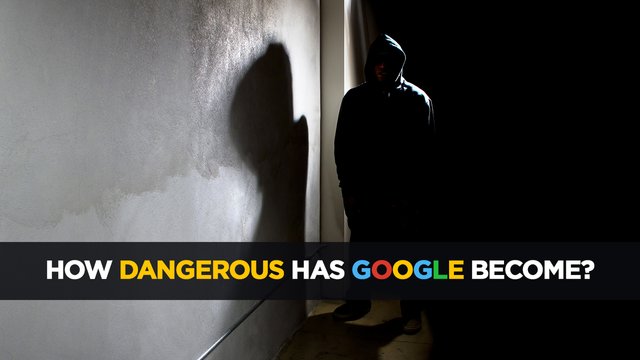
Dr. Robert Epstien (not related to previously discussed Epstein) a Harvard graduate who has worked at NPR, Disney, and Psychology Today (as editor in chief) stated at a US Senate Judiciary Committee that Google has the power to drastically sway election results. Dr. Epstien first published his findings on search engine manipulation effect (SEME) in 2015 in the Proceedings of the National Academy of Sciences of the United States of America.
https://www.pnas.org/content/112/33/E4512
According to Dr. Epstien if large tech companies cooperate in supporting the same candidate in the 2020 US election they will have the power to shift 15 million votes:
"... if these companies all support the same candidate, they will have the power to shift 15 million votes to that candidate. To let big tech get away with subliminal manipulation on this scale would be to make the free and fair election meaningless."
Describe some things you would consider 'deal breakers' with respect to search engines; that is, something a search engine (or parent company) could do that would stop you using that engine or cause you to switch to another engine.
I see a search engine as a purely practical tool. So I will only stop using one if it stops being useful. That said, I don’t think it is an all or nothing situation. For example, if you’re searching for a copyrighted TV show or movie to watch online, Google doesn’t provide the best results. For example compare “watch game of thrones online” on Google and DuckDuckGo. Google returns almost all mainstream outlets where you can pay for a subscription, where as DuckDuckGo provides websites which host episodes and allow you to watch for free. The results from DuckDuckGo are more like the results which Google returned in the past and more practical for the majority of users.
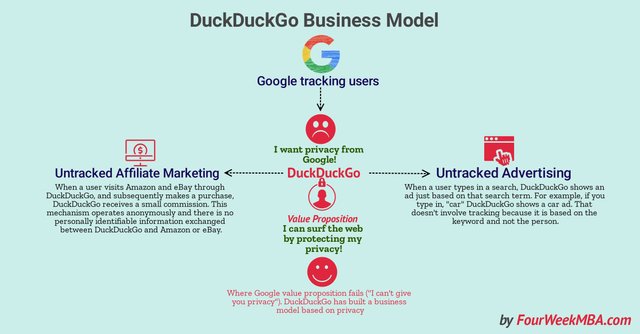
I think increasingly Google is strained for resources as its parent company Alphabet expands far beyond the initial focus of the company. This will likely result in more situations like the one described above where alternatives will compete for niche search topics. In addition to searching for copyrighted videos on DuckDuckGo I find Peteyvid.com to be a useful alternative for video search for obscure topics.
Is there such a thing as a secure search engine? Can you name one (or more)? Why are they considered secure (i.e. how do they work)? How well do they work, both as secure entities and as actual search engines?
One way to make your search more secure is to use what is known as “meta-search engine”. A meta-search engine is one which accesses multiple search engines on behalf of the user, compares the results, and generates a hybrid result. This not only has the benefit of showing results which may have been removed from a single engine but can also protect the privacy of user’s by acting as a proxy between the user and the search engine.
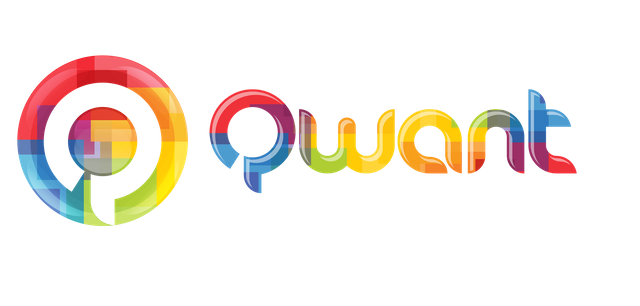
European governments have begun to take privacy and the American tech monopolies which track our every move very seriously. Several governments including that of France have started to transition from services offered by Google and Microsoft to European startups which focus on privacy and empowering users. One such search engine is Qwant which is actually thought to be a meta-search engine.
“Last month, both the French National Assembly and the French Army Ministry declared that their digital devices would stop using Google as their default search engines. Instead, they will use Qwant, a French and German search engine that prides itself for not tracking its users.
…
Although relatively novel, the concept of “digital sovereignty” can be roughly summarised as a country’s push to regain control over their own and their citizens’ data.”
https://www.wired.co.uk/article/google-france-silicon-valley
For those who want to go one step further there are experimental self-hosted meta-search engines such as Searx. This is even more secure than a normal meta-search engine because you are hosting your own proxy between yourself and the major search engines like Google and Bing. You don’t have to trust that any third party isn’t logging your searches. Furthermore you have the power to change the IP or anonymize your traffic so that Google and Bing can’t even correlate that your search queries came from the same person.
https://en.wikipedia.org/wiki/Searx
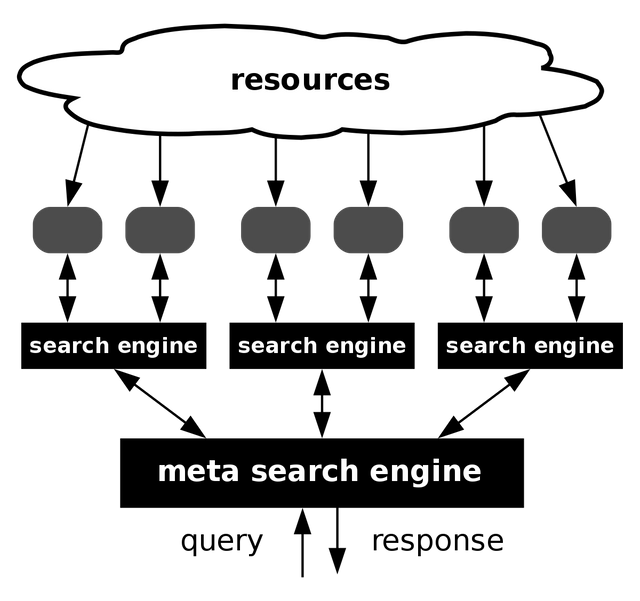
Of course meta-search engine has one crucial flaw, that is that it ultimately relies on the corporate giants that you’re trying to circumvent. An alternative to meta-search engines is P2P (peer-to-peer) search engines like YaCy. With a P2P search engine you are part of a decentralized network of servers that are indexing the internet just like Google does. I think an open-source P2P search engine is the most secure option given current technology. Though admittedly I’m only using it for the first time now in writing this, so I can’t give much feedback as to the quality of the results.
http://yacy.searchlab.eu/ (try Yacy)
https://yacy.net/en/index.html (learn more and host your own)
Another interesting lecture from Dr. Robert Epstein.
Brave Browser
If you're interested in privacy and fairness on the web, make sure to checkout Brave Browser.
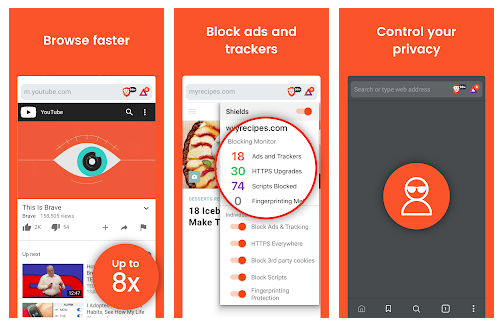
This article was adapted from a reflective journal for a graduate course I'm taking on Information Systems. For updates on my work follow me on Steemit, Twitter, and my Amazon Author Page. I can also be contracted on Telegram as Kirkins.
We are giving DAILY votes of 0.05$ to 0.10$ to all those who get into the @inteligentzia TRAIL at steemauto.com, take advantage now! Contact me by Discord if you need more information
I leave you a post tutorial: https://steemit.com/steempress/@inteligentzia/joininteligentziastrailandreceivedailyvotesworth005-8jz1sahkvf